The Third Phase Model Courts Initiative Presented at the Conference “Court Administration Capacity: from European Experience to Ukrainian Implementation”
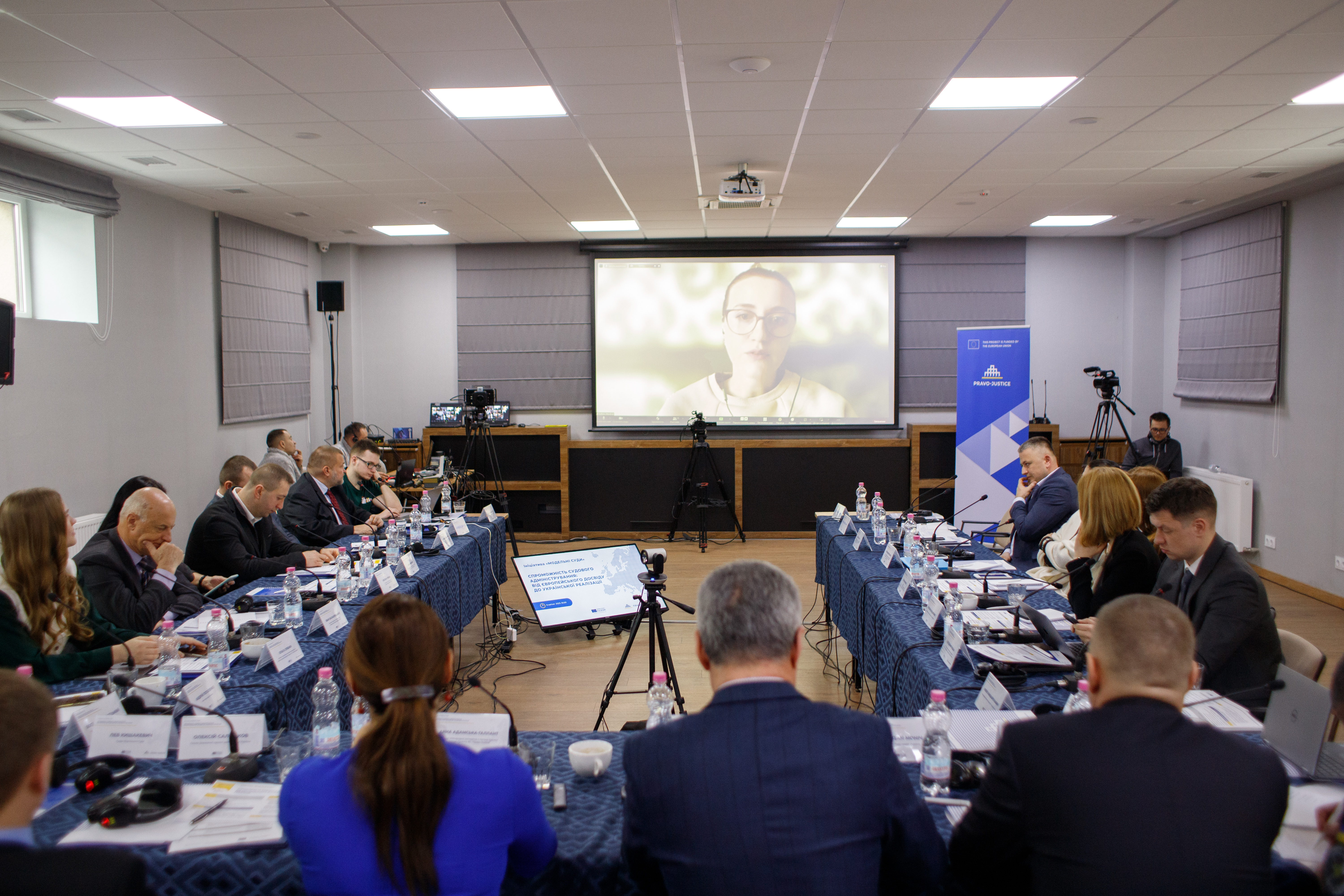
On April 6, EU Project Pravo-Justice together with the State Judicial Administration of Ukraine held a conference “Court Administration Capacity: from European Experience to Ukrainian Implementation” within the framework of Model Courts Initiative. The third phase of the Initiative was presented to courts and representatives of judicial authorities and the results of the previous period of its implementation were summed up at this event.
When opening the event, Hryhorii Usyk, Head of the High Council of Justice, thanked EU Project Pravo-Justice for the opportunity to discuss urgent issues related to judicial administration, especially during martial law.
“An important aspect is to ensure comfort and security when it comes to working in courtrooms. Therefore, we are grateful to the Project and Model Courts Initiative experts for the opportunity to implement European courts’ best practices in Ukraine, to introduce their proposals and contributions related to improving court services, the quality of work with vulnerable groups, the security of judges, staff and court visitors”, Hryhorii Usyk emphasized.
Bohdan Monich, Head of the Council of Judges of Ukraine noted that thanks to the coordinated work of the President, the Parliament, and the judicial authorities, despite the military aggression, justice is administered in Ukraine, and the citizens’ rights are properly protected.
“We need to continue our work on strengthening and modernizing Ukrainian judiciary so that it operates in accordance with European best practices,” said Bohdan Monich. According to Lev Kyshakevych, justice of the Supreme Court, despite the ongoing aggression, it is important to continue discussing the development of the judiciary and improving access to the court.
“To a large extent, these issues depend on how court activity is arranged. In this regard, implementing the Model Courts Initiative is of vital importance. After all, reasonable workflow optimization with due regard to court peculiarities is exactly what is required to improve the quality of court services. It is essential that the concept of model courts combines three aspects: providing services to clients, court security, court operations and court staff activities,” said Lev Kyshakevych.
Oleksii Salnikov, Head of the State Judicial Administration of Ukraine, noted the Model Courts Initiative has been actively implemented since 2018.
“Thanks to this Initiative, Ukrainian courts received guidelines, advisory support and material assistance. It is important that more and more courts are interested in the Initiative every day. There are currently 76 participants of the Initiative , and new courts will be joining this new phase, which is to be implemented under extraordinary circumstances, namely the war,” Oleksii Salnikov noted.
Serhii Moroz, Acting Head of the Court Security Service thanked the Project for being attentive to improving court security, that of staff and court visitors.
“Because of the full-scale invasion of the Russian Federation on the territory of Ukraine, the Court Security Service and the judiciary as a whole are facing new challenges and threats. The Court Security Service Staff have adjusted to arranging security during martial law and to amending the methodology of protecting court premises and ensuring the security of courts and participants in court proceedings,” Serhii Moroz said.
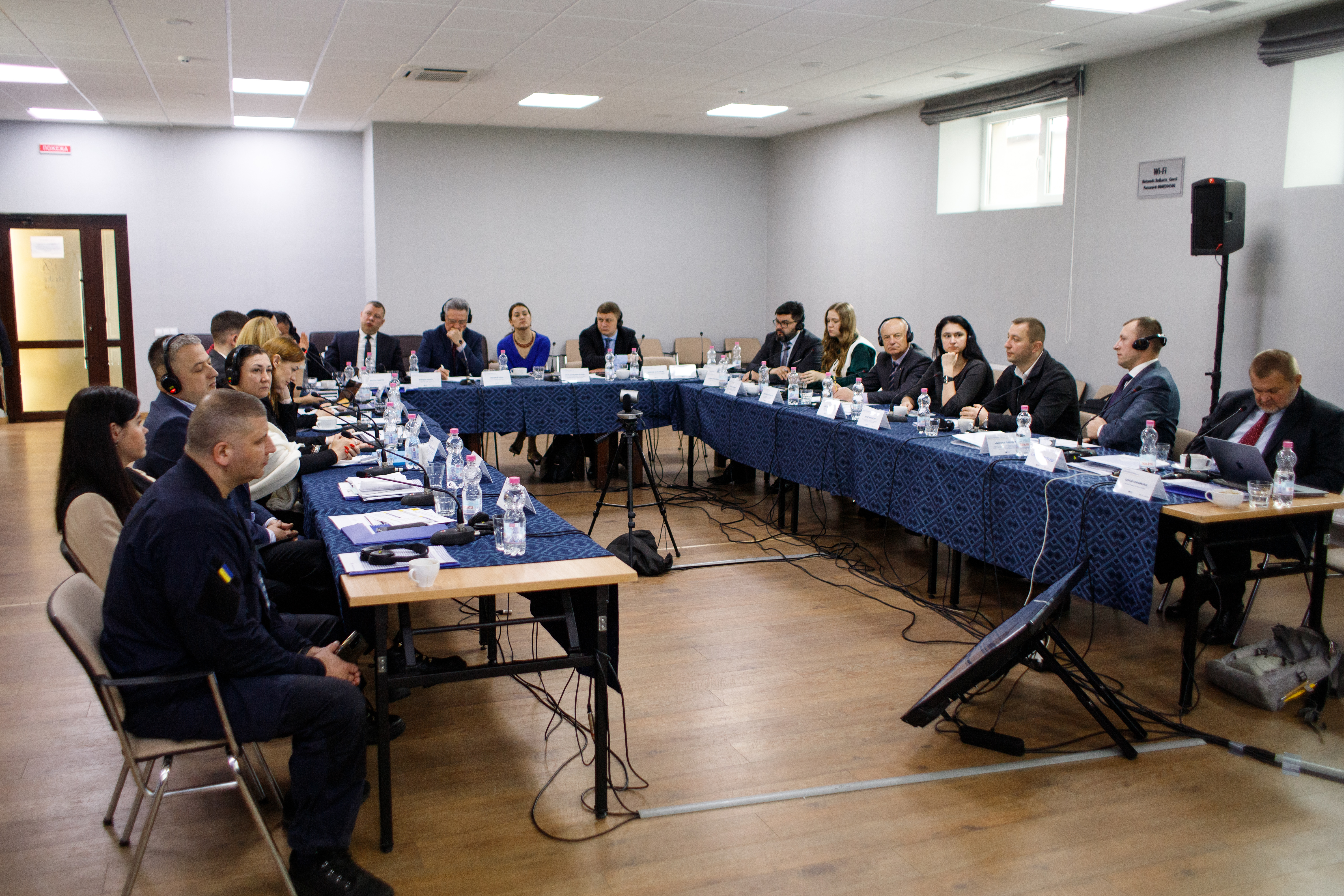
Ivan Balaklytskyi, Head of the Judge Training Department of the National School of Judges of Ukraine, noted that the School and the Project have been cooperating effectively in spreading the solutions developed in course of implementing the Model Courts Initiative.
“NSJU representatives actively use model solutions developed within the Initiative and European countries’ best practices when drawing up curricula for the training of judges, court presidents and their deputies. We welcome the commencement of the new phase of the Initiative,” said Ivan Balaklytskyi.
Anna Adamska-Gallant, Key International Expert on Judiciary Reform with EU Project Pravo-Justice, spoke about the results of the previous implementation period of the Model Courts Initiative and presented the concept of the new phase of the Initiative which will unite 90 courts.
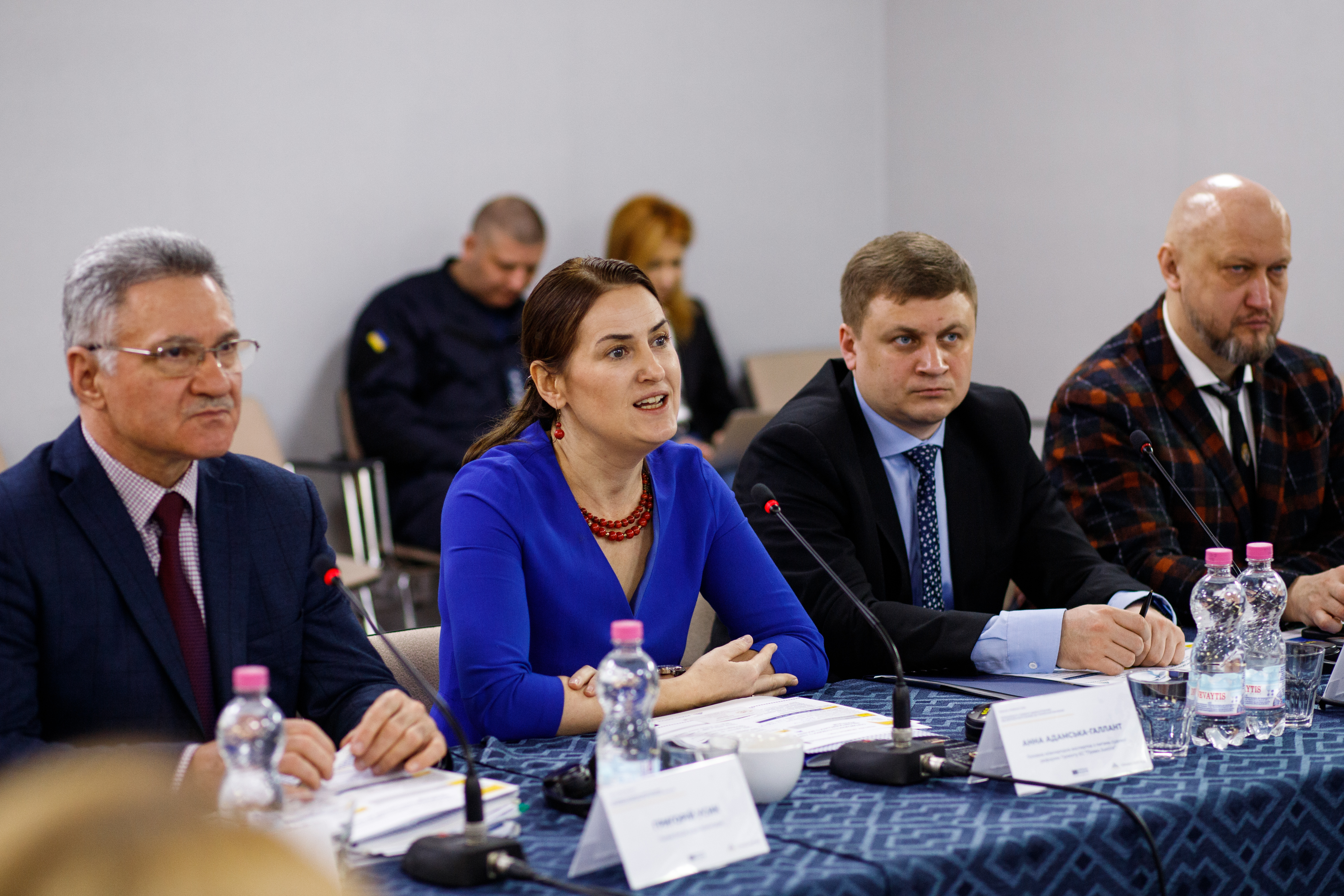
“We will continue working on the main pillars of the Initiative, such as client-orientated court, court operations, and court security. However, this year we will add another topic – managing emotional dynamics in the team. Another important direction will be to build up a community of courts that implement best practices and share respective experience. That is why the Good Practices Platform will be created; it will include the contributions made by international projects and Ukrainian courts’ best practices related to various aspects of court management,” said Anna Adamska-Gallant.
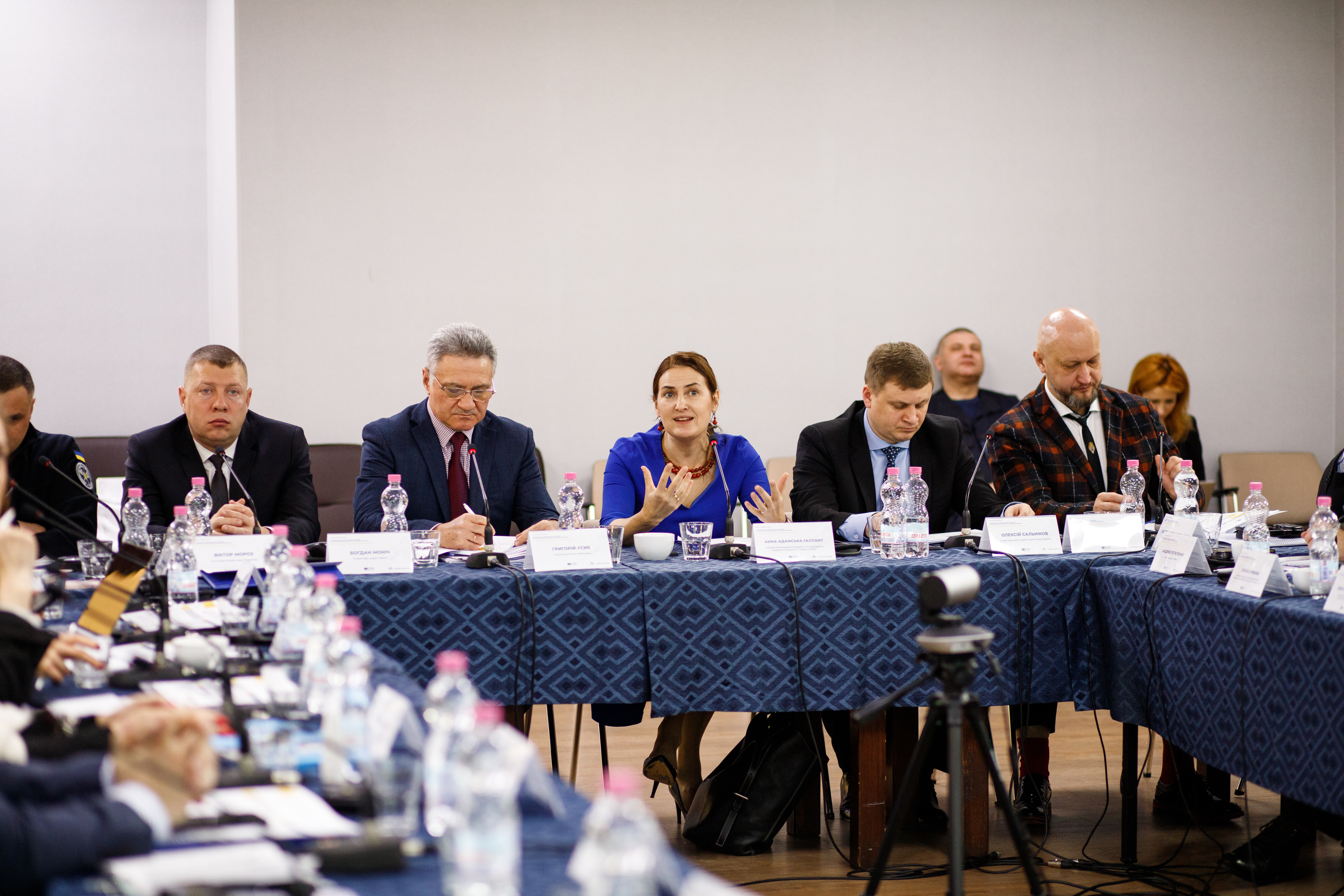
According to the Key International Expert on Judiciary Reform of the EU Project Pravo-Justice, the third direction of the new phase of the Initiative will be to work together with the courts to improve by-laws related to fundamental managerial, staff, and logistics principles of court operations. For this purpose, working groups consisting of courts and SJA representatives will be established.
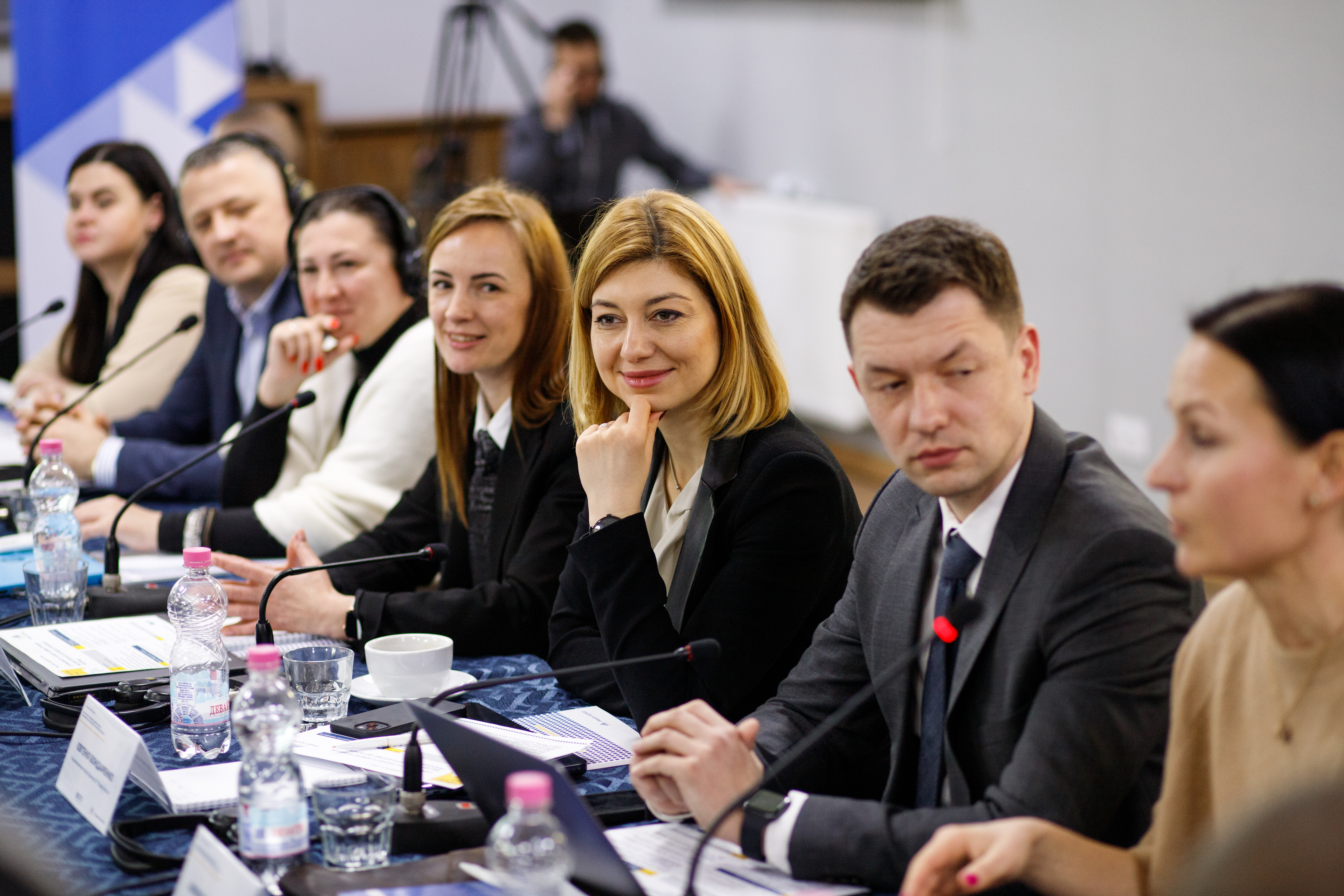
Yevheniia Bondarenko, EU Project Pravo-Justice National Expert, spoke about the experience of implementing services for vulnerable court users, developing Court Volunteer Service, and important aspects of further work in this direction during martial law.
Svitlana Maistruk, EU Project Pravo-Justice National Expert, presented online platform “Model Courts: Good Practices Platform”. The online platform will become an information and educational resource for all courts with due regard to their needs during martial law and post-war reconstruction.
Cornelis Verhaeren, Zivile Navickaite-Babkin and Reda Moliene, EU Project Pravo-Justice International Experts, spoke about judicial security during martial law and after it is over, the most current trends in judicial communication and developing client services in courts to bring justice closer to court services users.
The plans of the All-Ukrainian Association of Court Employees were presented by Nataliia Korol, Chief of Staff of the Vinnytsia Region Court of Appeal, Head the said NGO, Olena Bezborodova, Chief of Staff of the Lenin District Court of the city of Kharkiv, and Bohdan Kryklyvenko, Chief of Staff of the High Anti-Corruption Court.
Conference recording